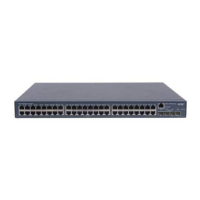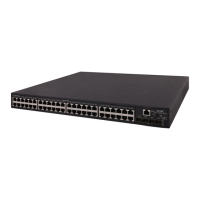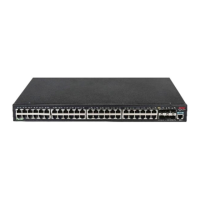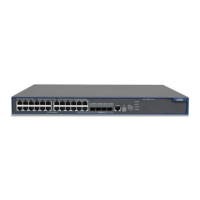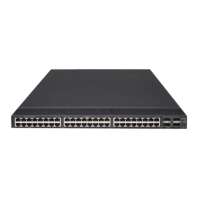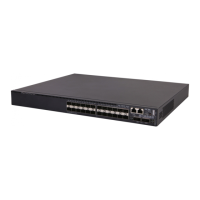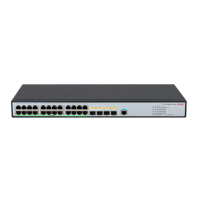7
A second in which errored frames appear is called an "errored frame second."
Remote fault detection
Information OAMPDUs are exchanged periodically among Ethernet OAM entities across established
OAM connections. In a network where traffic is interrupted due to device failures or unavailability, the
flag field defined in information OAMPDUs allows an Ethernet OAM entity to send error
information—the critical link event type—to its peer. You can use the log information to track ongoing link
status and troubleshoot problems promptly.
Table 8 Critical link events
T
e Descri
tion OAMPDU transmission fre
uencies
Link Fault Peer link signal is lost. Once per second
Dying Gasp
A power failure or other unexpected error
occurred.
Non-stop
Critical Event An undetermined critical event occurred. Non-stop
This Switch Series is able to receive information OAMPDUs carrying the critical link events listed in Table
8.
Onl
y the Gigabit fiber ports are able to send information OAMPDUs carrying Link Fault events.
This Switch Series is able to send information OAMPDUs carrying Dying Gasp events when the device is
rebooted or relevant ports are manually shut down. Physical IRF ports, however, are unable to send this
type of OAMPDU. For more information about physical IRF ports, see IRF Configuration Guide.
This Switch Series is unable to send information OAMPDUs carrying Critical Events.
Remote loopback
Remote loopback is available only after the Ethernet OAM connection is established. With remote
loopback enabled, the Ethernet OAM entity operating in active Ethernet OAM mode sends
non-OAMPDUs to its peer. After receiving these frames, the peer does not forward them according to
their destination addresses. Instead, it returns them to the sender along the original path.
Remote loopback enables you to check the link status and locate link failures. Performing remote
loopback periodically helps to detect network faults promptly. Furthermore, performing remote loopback
by network segments helps to locate network faults.
Standards and protocols
Ethernet OAM is defined in IEEE 802.3ah (Carrier Sense Multiple Access with Collision Detection
(CSMA/CD) Access Method and Physical Layer Specifications.
Ethernet OAM configuration task list
Task Remarks
Configuring basic Ethernet OAM functions Required
Configuring the Ethernet OAM connection detection timers Optional
Configuring link
monitoring
Configuring errored symbol event detection Optional
Configuring errored frame event detection Optional

